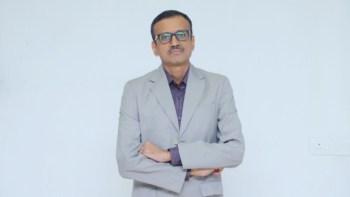
The physicist Michael Binder has taken over as president of the Canadian Nuclear Safety Commission (CNSC). A senior civil servant, Binder replaces Linda Keen, who was fired on Tuesday by the Canadian government for her role in last year’s extended shutdown of the Canadian reactor that produces more than half the world’s supply of medical isotopes. Keen remains a member of the CNSC, which oversees the safety of Canada’s nuclear reactors.
Keen was sacked following a very public disagreement with Gary Lunn, Minister of Natural Resources in Canada’s Conservative minority government, who is responsible for the CNSC. Friction between the two arose last month after the CNSC apparently refused to allow the National Research Universal (NRU) reactor in Chalk River, Ontario to resume operations following a scheduled shutdown for maintenance. The CNSC had been concerned that the reactor’s owner, Atomic Energy of Canada Limited (AECL), had not made certain modifications to the reactor’s emergency power system.
Medical treatment delayed
NRU produces North America’s entire supply of molybdenum-99 — from which the radioactive isotopes technetium-99 and iodine-131 are made — and the shutdown caused delays to the diagnosis and treatment of thousands of seriously ill patients. In a surprise move, the Canadian Parliament overruled the CNSC, and ordered AECL to restart the reactor without completing the modifications.
If we had not acted, people would have died Gary Lunn, Minister of Natural Resources
Lunn defended his firing of Keen and his overall handling of the situation yesterday in an appearance before the House of Commons Natural Resources Committee in Ottawa. “The extended shutdown of the reactor threatened a national and international health crisis,” he said. “If we had not acted, people would have died.” He added that “She has lost the confidence of the government.”
After saying that she would appear at the hearing, Keen chose not to do so. However, she had made her views known last week in a written exchange with the minister.
Lunn told Keen that the issue has “cast doubt on whether you possess the fundamental good judgment required by the incumbent of the office of President of the Commission, and whether you are duly executing the requirements of the office”.
Keen responded that “Any objective assessment of the facts will reveal that the allegations contained in your letter are entirely without merit”. She pointed out that “the CNSC did not order or force AECL to shut down, or extend the shutdown…[T]he decision was made by AECL’s senior management.” Keen added that Lunn’s requirement that “we, an independent, quasi-judicial administrative tribunal, answer you about this case [is an example] of improper interference with both the institutional independence of the CNSC and with the administration of justice.”
‘Blatant political interference’
Opposition MPs took up that point in yesterday’s committee hearing. Omar Alghabra of the Liberal Party accused Lunn of “blatant political interference.” Claude DeBellefeuille of the Bloc Québécois added that Lunn had “shaken the confidence that people should have in this independent watchdog for nuclear safety.”
For many in the medical physics community, the decision involved balancing potential problems that might stem from malfunction of the reactor against difficulties created by the loss of medical isotopes. “It is always difficult to justify the government getting involved in the actions of the regulator,” said Alexander McEwan, president of the [US-based] Society for Nuclear Medicine and director of the imaging department at the Cross Cancer Institute in Edmonton, Alberta. “But the other side is: How do you weigh the risk and benefit?” He added: “We’re delighted that the NRU is back.”
McEwan emphasized the role of organizations such as the Society for Nuclear Medicine in such debates. “Any professional medical society has to ensure that the public, the regulator, and the government are appropriately educated in the benefits and risks of radiation at every level of the production chain,” he said. “We’ve been trying to do that for ten years, and will continue to do so.”




